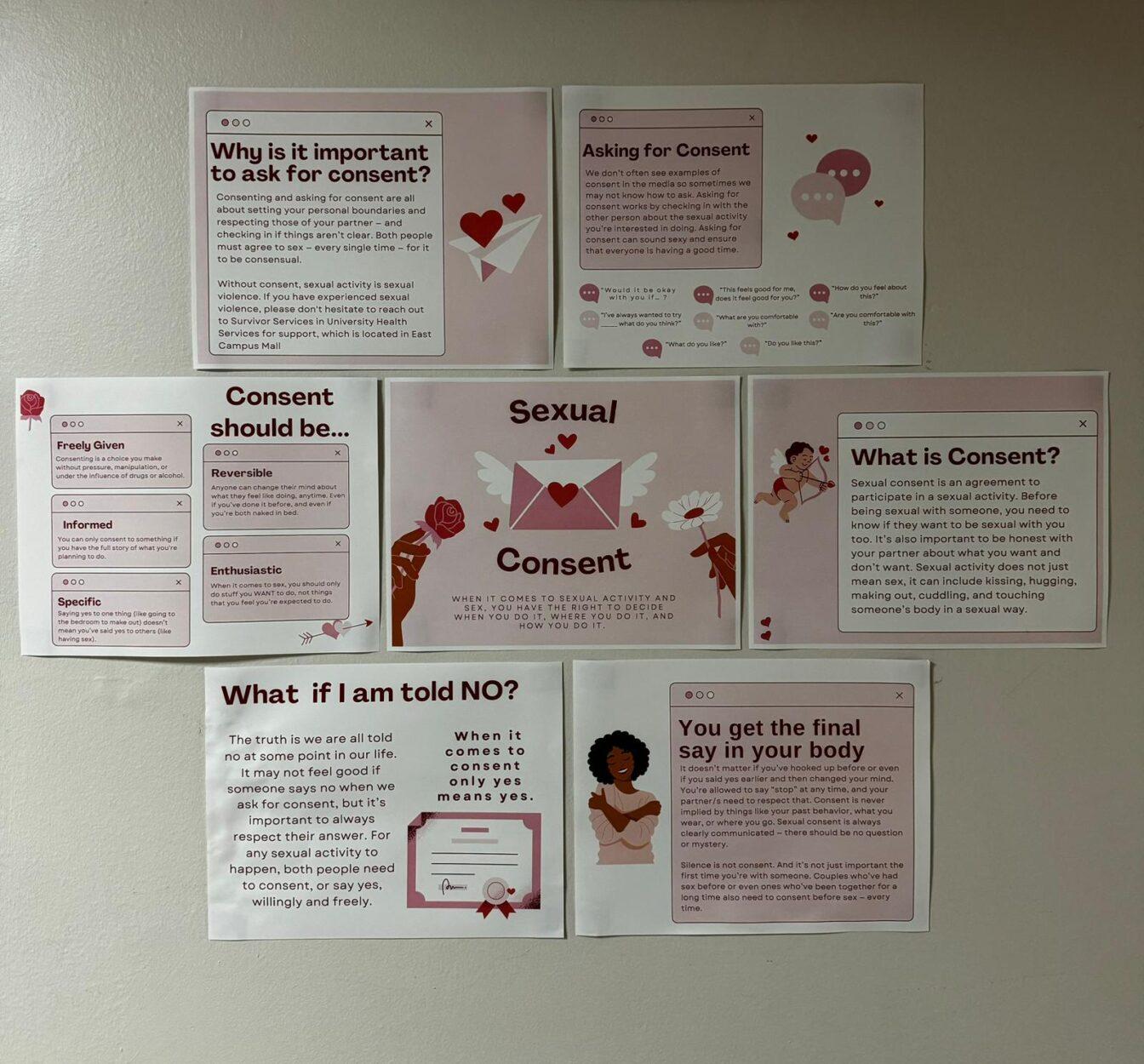The RCC Sexual Violence Research Center recently received a $55,000 grant from the Madison Community Foundation to improve the state of sexual violence prevention education within Dane County middle and high schools.
Grant funds will be dedicated toward the job for the current education director and for the hiring of additional educators, according to RCC Sexual Violence Resource Center Executive Director Dana Pellebon.
MCF Director of Grantmaking Angela Davis said the grant was aimed at offering aid to provide comprehensive sex education throughout the county.
“RCC was seeking to expand their organizational capacity to provide sexual violence prevention education to middle and high school student in Dane County.” Davis said. “At their current capacity, they only had one full time employee serving the entire county, but the demand for middle and high school prevention education exceeded that.”
The grant will allow RCC Sexual Violence Resource Center to higher an educational specialist and increase their reach from 3,500 to 7,000 students per year in the Madison Metropolitan School District and other Dane County schools, Davis said.
Education in schools will be based on the RCC Sexual Violence Resource Center’s Building Safer Communities curriculum — a three-part educational series directed by a trauma-informed presenter. Since its implementation in Dane County high schools last year, the curriculum has been modified to fit the changing needs of the community and is being applied to the middle schools, according to Pellebon.
Developed in partnership with University of Wisconsin graduate students, the series covers three main topics — sexual violence, healthy relationships and boundaries, and building safer communities. Some of the main objectives of the series include informing students about the relationship between consent and sexual violence, understanding and communicating boundaries and identifying strategies to be an active bystander.
“The education specialist will support their ongoing goal of building community connections, creating awareness of the social factors that lead to sexual assault and informing students that RCC [Sexual Violence Resource Center] is a reliable resource to address healing and advocacy needs in the aftermath of sexual violence,” Davis said. “The education specialist will also provide education on consent, rape culture, media literacy and healthy relationships, implementing a new curriculum created in partnership with the UW civil society and community research department with Dr. Linnea Hjelm, PhD.”
In Wisconsin, 19.9% high school students reported that they have been forced to “do sexual things they did not want to do,” according to the Wisconsin Department of Health Services. Nationally, one third of women and one sixth of men have experienced sexual violence in their lifetime. The persistence of sexual violence necessitates additional education for youth in the community, Pellebon said.
The concern for having increased sexual health education is shared among community and campus members alike. Sex Out Loud, UW’s peer-to-peer sexual health resource, is committed to providing comprehensive sex-positive and pleasure inclusive education to the campus and the greater surrounding community. Sex Out Loud provide services such as peer counseling, educational programming, stigma reducing events and the distribution of safe sex supplies to the entire campus.
According to Program Chair Mia Warren, the state of sexual health education in the country is lacking — since it is still common for states to provide abstinence-only education, which has been linked to increased likelihood of teen pregnancy, according to the National Institute of Health.
Additionally, this abstinence-only education utilizes fear and guilt, reinforces gender stereotypes and puts LGBTQ+ students at a higher risk for experiencing violence, according to the Journal of Adolescent Health. Warren said educational information should focus on de-stigmatizing sex.
“Sex to a lot of folks is something that should be for reproduction,” Warren said. “This is perpetuated by religion, media, heteronormativity, cisnormativity and all of these other systems we have in the United States. It really makes it difficult for folks to talk about sex. There’s a big misconception that talking about sex and educating people about sex will encourage younger people to have more sex and that’s not the case at all. It’s providing folks the tools and resources they need.”
Proposal to bring late night food truck vending to State Street
Despite the difficulties that the county and the country face in regards to providing sex education, the RCC Sexual Violence Resource Center has continued their direct work with the community to provide a reliable helpline and support system for the Midwest, according to Warren.
Funding to implement training will fill needs in the community to set consent a standard within sexual education and normalize the conversation around sexual health, Pellebon said. In the future, the RCC Sexual Violence Resource Center plans to conduct surveys with students in order to gauge the effectiveness of the education within the schools.
“We absolutely believe that this is the type of education that our youth need in order to make healthy choices about relationships about boundaries, to understand consent so that when they are in situations they have the language and the ability to respond,” Pellebon said. “So our big goal is to be in every school and be talking with our kids about healthy boundaries, what healthy relationships look like and to give them the language to be able to intervene when there is an issue.”















